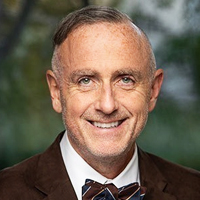Effect of spiritual health (Sound Heart) on the other dimensions of health at different levels of prevention
Published on: 21st September, 2018
OCLC Number/Unique Identifier: 7900079184
Introduction and goal: From the perspective of Islam, spiritual health means having a Sound Heart (a calm, confident and optimistic soul, with hope for God’s mercy, satisfaction with destiny and vitality). The way to achieve spiritual health is strengthening the faith and taking good deeds based on religious spirituality. This study was conducted with the aim of determining the impact of spiritual health (Sound Heart) on the other aspects of health at different levels of prevention.
Methods: In nine phases of research in 16 years, after designing and validating the “Sound Heart Model”. The spiritual problems of patients and healthy clients were determined. Spiritual care guidelines and the spiritual counseling model in patients and healthy clients were designed. Then “Parent’s Spiritual Empowerment Program”, “inter-professional spiritual health care training program” was extracted. Based on the findings of the previous steps, the effect of spiritual health on other aspects of health at different levels of prevention was extracted.
Findings: Belief in God and divine love creates spiritual health (Sound heart) with wisdom, chastity, courage, justice, dignity, kindness, and sincerity in action. Faith prevents neglecting from the God’s remembrance and its consequences such as: unhealthy lifestyle, risky behaviors, destructive excitements, psychosocial diseases in clients and eliminates the fear, anxiety, sadness and disappointment in patients. Spiritual health causes living in the present time with patience and grace of God, creates hope, optimism for the future, courage to face life crises. By creating mental health, it improves the psycho-neuron-immunologic function and improves physical health.
Conclusion: Considering the great impact of spiritual health on the other aspects of health at all levels of prevention, it is imperative that students and health care staff, by referring to these concepts, carry out spiritual care/counseling.
Approaching Mental Health Through a Preventive Data Analysis Platform
Published on: 3rd April, 2024
The rising prevalence of chronic diseases and the aging population globally are diminishing the overall quality of life, especially for those with demanding daily routines. As medical advancements extend lifespans, the proportion of individuals over 60 is set to double by 2050, necessitating societal shifts toward health-responsible citizenship. Despite longer lifespans, evidence suggests that older age often accompanies mental health challenges such as anxiety, depression, and substance misuse. Social isolation and loneliness further compound these issues, affecting both physical and mental well-being. Digital wellness empowers individuals to take charge of their health, promoting proactive care and literacy to foster health-conscious citizenship. This paper explores the intersection of mental health, aging populations, preventive wellness initiatives, and health literacy, emphasizing their significance within the Health 5.0 framework, especially for older adults. Traditionally, health regulators offer static workflows for adopting standard procedures in health and well-being, reflecting a reactive approach. However, the evolving landscape of wearable and mobile devices connecting to healthcare IT systems through secure online networks necessitates a shift. Technology now facilitates remote patient monitoring and telemedicine service subscriptions and empowers individuals to manage their health proactively.The BE4YOU project, conducted in Portugal, serves as a case study, facilitating individual maintenance of health and well-being through intelligent and dynamic workflows, which are defined based on analytical models considering each person’s risk profile. By facilitating data sharing, promoting healthy lifestyles, and enabling early detection of mental health issues, the project leverages technology to support personalized monitoring and enhance overall health outcomes. Through technology-driven empowerment, individuals and healthcare professionals are better equipped to assess risks and ensure ongoing wellness monitoring, underscoring the role of technology in fostering personal health and supporting healthcare effectiveness.
Designing a Community Health Worker (CHW) Certificate Training that Centers Marginalized Youth’s Health and Wellness
Published on: 23rd April, 2024
The genesis of the youth Community Health Worker (CHW) and Citizen/Community Science (CS) training is rooted in interdisciplinary research and the lived experiences of families in Chicago and Urbana-Champaign. Dr. Mendenhall and colleagues’ (Drs. Robinson, Roberts and Rodriquez-Zas) South Chicago’s Black Mothers’ Resiliency Project provide dinsights into Black women’s experiences with genomics, trauma, and community science. Black women’s testimonies highlighted the health impacts of living in neighborhoods with high levels of gun violence and the resilience strategies they employ. This led to the development of a youth-centered CHW and CS training program, aimed at addressing health disparities. The program trained high school students and young adults (up to age 24) as CHWs and CSs, focusing on the objectives of (1) embedding culturally competent health workers in marginalized communities; (2) amplifying community voices; (3) collecting, analyzing, and quantifying observational data to inform policy decision-making; (4) amplifying community voices in healthcare discussions and (5) creating community health care worker training certification for youth. Over three years, the program trained over 50 participants, incorporating elements of wellness, art, and entrepreneurship.Based on ethnographic notes participants reported increases in wellness such as reduced anxiety and increased empowerment. The program’s long-term goals include creating employment opportunities for graduates and contributing to improved community health outcomes. This initiative represents a step towards addressing racial trauma and promoting community healing through youth-led innovation and empowerment.
From Adversity to Agency: Storytelling as a Tool for Building Children’s Resilience
Published on: 11th November, 2024
Children who experience Adverse Childhood Experiences (ACEs)—including trauma, family instability, or significant loss—are at increased risk for enduring mental, emotional, and physical challenges, including conditions such as depression, anxiety, and chronic health issues. Without effective support, these adverse experiences can have lasting effects on a child’s well-being, often persisting into adulthood and impacting mental, emotional, and physical health outcomes over the long term. Storytelling is a powerful method to support resilience in these children by enabling them to process emotions, make sense of complex experiences, and view themselves as active agents in their lives. By framing their experiences within personal narratives, children can create coherent stories that aid emotional regulation and support mental well-being. Through storytelling, children can frame their struggles as part of a larger, purposeful journey, fostering a sense of agency and self-worth. Techniques such as narrative therapy, story circles, and resilience-themed books-exemplified by The Adventures of Gabriel—help children explore their experiences, visualise positive outcomes, and strengthen social bonds. Moreover, storytelling is an accessible tool that aids in perspective—taking, allowing children to relate their challenges to those of characters, which reinforces their ability to overcome adversity and navigate life’s complexities with strength and optimism.




